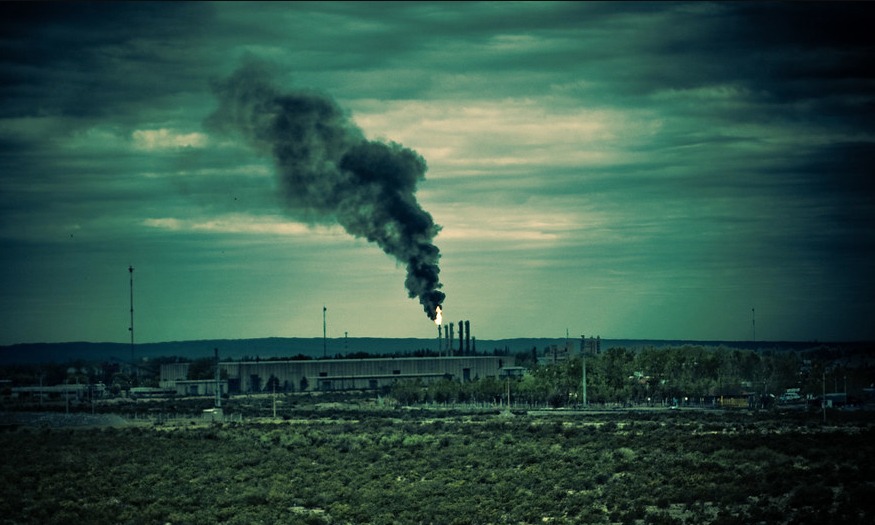Co-author Leonardo E. Stanley
Since the beginning of the Industrial Revolution, average temperatures have gradually increased. However, today we are facing an unprecedented situation. In the last five decades the increase has accelerated and has placed humanity on the edge of ecological security. According to the Report published in 2018 by the UN Intergovernmental Panel on Climate Change, if this trend persists, in less than ten years, the threshold of 1.5 degrees in relation to the temperature before the radical transformation of production methods could be exceeded. The consequences could be dramatic: life in many parts of the planet would be affected and thousands of people would have to migrate.
The urgency sharpens the contradictions of the production system and raises the question of the relevance of abandoning the current development model and reconsidering the environmental costs of certain industrial sectors. Business as usual” is no longer a valid response. But those who are reluctant to change their behavior are often protected by legal-institutional schemes created like tailor-made suits to protect foreign investors.
In various parts of the world, civil society movements have sprung up in pursuit of environmental and social rights, which in several cases imply a risk for their members. Latin America and the Caribbean continues to be the most dangerous region for human rights and environmental defenders. Countries such as Bolivia, Ecuador, El Salvador, Guatemala, Honduras, Nicaragua and Paraguay still do not have protocols or policies to protect those working on environmental issues, according to Amnesty International’s latest report.
Investor-State disputes
The murders in El Salvador of environmental defenders Marcelo Rivera, Felicita Escheverría and Dora Alicia Resinos Sorto, who was 8 months pregnant, are part of the local community’s opposition to the PacRim mining project. This is an emblematic case and the investor-State dispute is being settled at the International Center for Settlement of Investment Disputes.
Even without being able to determine the perpetrators of the crimes, the Attorney General’s Office considered that there were indications that the murders could have a common origin, as indicated in the amicus curiae brief filed by the non-governmental organization CIEL and rejected by the tribunal. Finally, the 2016 decision was favorable to the State and from then on El Salvador became the first country in the world to ban metallic mining.
Latin America: cradle of other voices
Invisible voices in investor-state arbitration are gaining space in other arenas. In Colombia, a group of 25 children and young people-between the ages of 7 and 25-initiated a lawsuit in court because their human rights were being threatened by the deforestation of the Colombian Amazon and the resulting greenhouse effect.
With a broad vision of human rights, in the 2018 ruling the Colombian Supreme Court recognized the rights of present and future generations due to the imminent harm generated by deforestation. This also considered the Colombian Amazon as an entity subject to law.
Another case is that of a Peruvian mountain guide, Luciano Lliuya, who filed a lawsuit in the courts of Essen, Germany, against the German electricity supplier RWE regarding its responsibility for the accumulation of carbon dioxide in the atmosphere. Although the court ruled against him in the first instance, Lliuya appealed to the Hamm Higher Regional Court and is awaiting a decision.
Environmental advocacy sprouts from the ground up. In 2013, the Canadian mining company Barrick Gold’s failure to monitor glaciers and discharge water into the Estrecho River caused environmental and health damage to the local population on the border between Chile and Argentina. In the ruling, the Environmental Court of Antofagasta established the total and definitive closure of the Pascua Lama gold project.
Another case is being heard in Ecuador’s Constitutional Court regarding the exploitation of the Río Magdalena mining project in the Los Cedros Protected Forest by Empresa Nacional Minera. The case reached the Constitutional Court after the second instance ruling of the Provincial Court of Imbabura concluded that nature’s rights were not being violated. The lawsuit is particularly interesting because the mining company is state-owned and therefore the responsibility of the state.
Nothing new under the sun?
In the above-mentioned disputes, a series of institutional changes can be observed, supported by the obligations assumed by the States in international treaties that protect biodiversity or the rights of indigenous peoples and local communities. Likewise, changes have been consolidated at the domestic level in Latin America. Ecuador and Bolivia have protected the rights of nature at the constitutional level, Colombia recognizes rivers as a subject of law, and in Chile the issue is being debated in the Constituent Assembly.
Litigation on climate issues is not new, but the the plaintiffs’ arguments and the greater receptiveness of the courts to analyze these issues are. The Supreme Court of the United Kingdom accepted the lawsuit filed by the Ogale and Bill communities in Nigeria against Royal Dutch Shell and its Nigerian subsidiary Shell Petroleum Development Company. In February of this year the Court ruled in favor of the plaintiffs.
Although the oil companies are not unaware of the harmful effects of their activity, they have managed to evade responsibility for years. The impossibility of recognizing the origin of emissions frustrated lawsuits and prevented action against climate change. Today, there is data that provides greater precision, identifies the source responsible and the level of pollution, and can estimate how long the effects will last.
These same concepts could be applied to sectors such as deforestation, water pollution and mega mining. These cases are just one example of how environmental defense is also sprouting from the ground up and has begun to make its presence felt in Latin America and other parts of the world. These voices, often forgotten, are those that question an international scenario where industrial activity generates environmental damage that ends up affecting the majority.
*Translation from Spanish by Marika Olijar
Photo by aguscruiz not Foter.com











